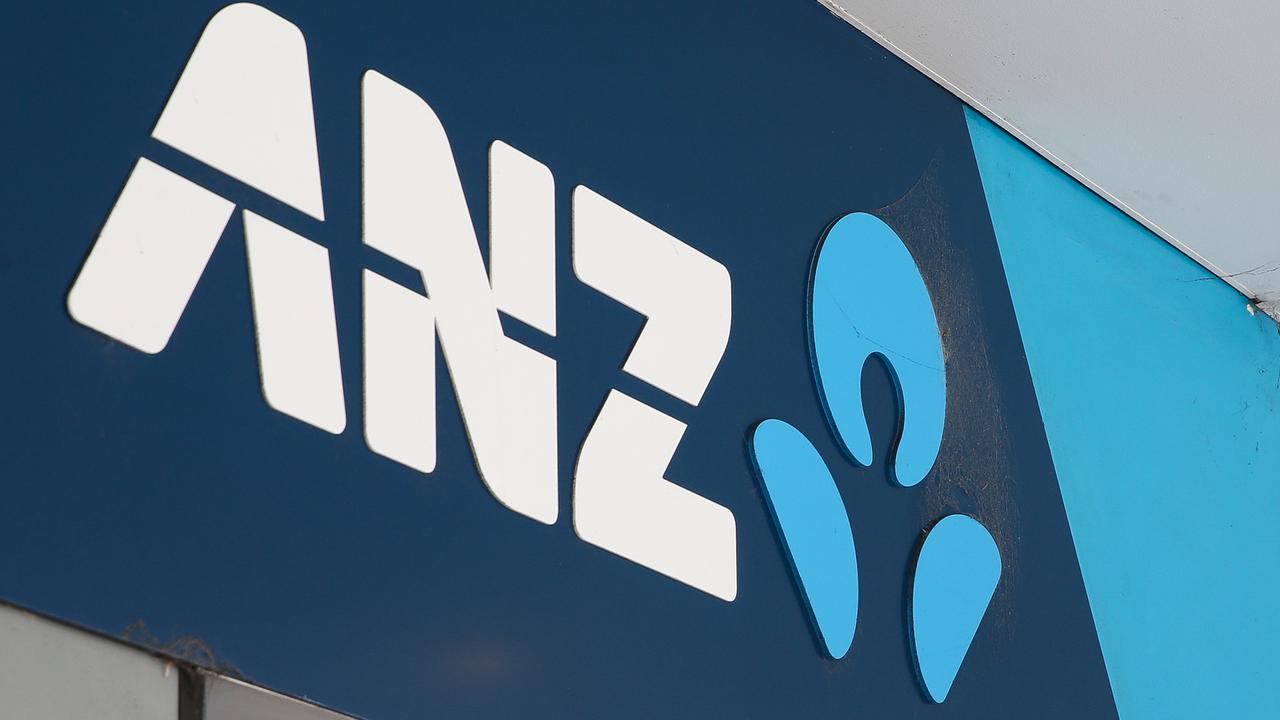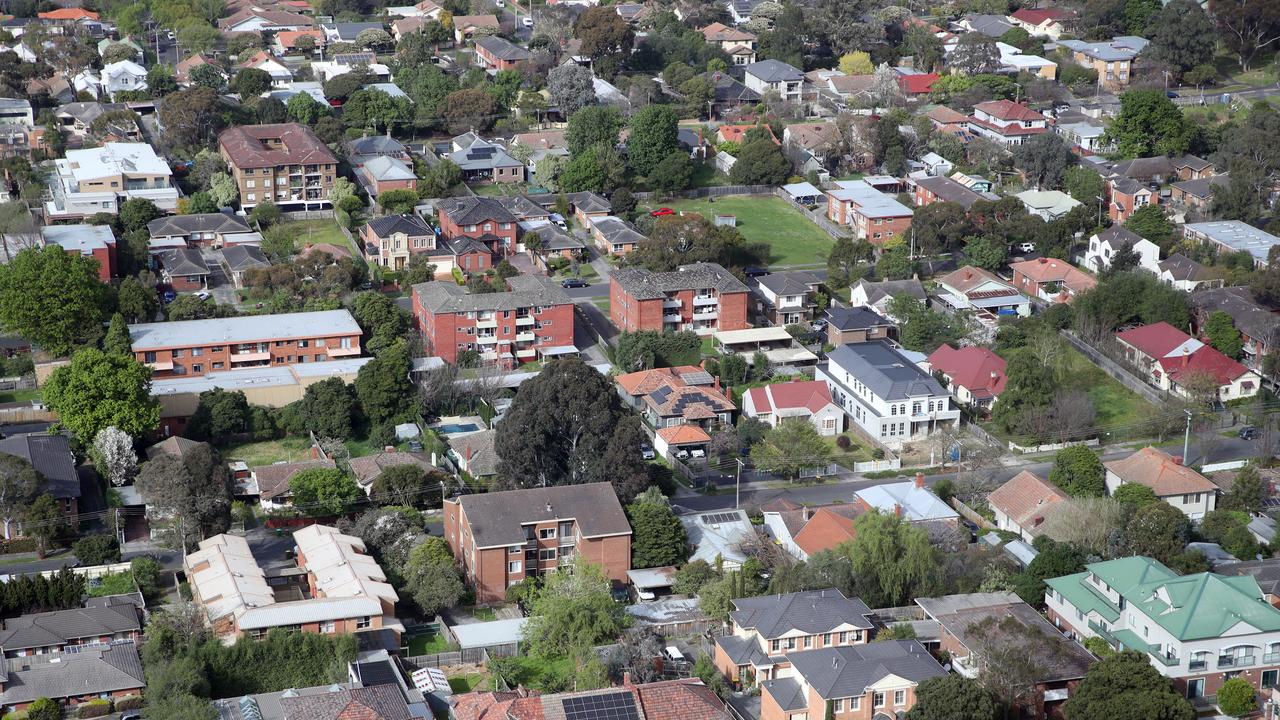Inflation eases in December quarter signalling February rate hold
Inflation eased in the December quarter to its lowest level in two years, all but guaranteeing the Reserve Bank board keeps rates on hold.

Interest Rates
Don't miss out on the headlines from Interest Rates. Followed categories will be added to My News.
Inflation eased in the December quarter to its lowest level in two years, all but guaranteeing the Reserve Bank has finished its aggressive run of rate hikes.
The consumer price index, a gauge of the prices individuals pay for a broad range of goods and services, eased to 4.1 per cent in the year to December, down from 5.4 per cent in the September quarter, the Australian Bureau of Statistics said on Wednesday.
In the December quarter alone, inflation slowed to 0.6 per cent, its lowest quarterly reading since March 2021.
The annual pace of inflation was lower than consensus forecasts of 4.3 per cent, reinforcing expectations that the cash rate will be kept on hold at 4.35 per cent at its first meeting for 2024, scheduled for February 6.
But while the result undershot the RBA’s forecasts for 4.5 per cent, borrowers will likely have to wait until mid-year for any relief in the form of rate cuts.
Following the fresh figures, bond traders revised their expectations for rate cuts, ascribing a 78 per cent chance of a cut at the RBA’s June meeting.
Money markets are fully priced for a rate cut in August, followed by a follow up cut in December, which would lower the cash rate to 3.85 per cent by year’s end.
Over the quarter, consumers paid less for household goods, transport, education, and for some groceries including beef, lamb, fruit and vegetables.
Motorists received some relief at the bowser, with average unleaded petrol prices falling from a high of $2.13 per litre in early October, to a low of $1.78 per litre in mid-December.
But other goods like tobacco, which jumped 7 per cent, new dwellings, up 1.5 per cent, and domestic holidays, up 3.9 per cent, were substantially more expensive.
Inflation in the labour-intensive services sector, which RBA governor Michele Bullock has cited as the growing cause of Australia’s inflation challenge, fell from 5.8 per cent to 4.6 per cent.
The RBA’s preferred measure of underlying price pressures – trimmed mean inflation, which strips out volatile items such as food and petrol – also slipped to 4.2 per cent, down from 5.1 per cent in September.
Westpac chief economist Luci Ellis said the RBA would keep the cash rate on hold next week, and it was unlikely to raise rates further this cycle.
“Today’s CPI release seals the deal,” she said.
Noting the increase in house prices and recent uptick in productivity, Ms Ellis said some of the risks the RBA had identified had “not come to pass”.
“We continue to expect the first rate cut no earlier than September,” she said.
But HSBC chief economist Paul Bloxham said that despite the positive headline figure, it was “too early to be talking about rate cuts”.
“Core inflation is still above the RBA’s 2 to 3 per cent target band on a yearly, quarterly and six-month annualised basis,” Mr Bloxham said.
“Domestic inflation also still has too much positive momentum, with most of the disinflation so far coming from falling tradables prices.”
EY chief economist Cherelle Murphy agreed that while household borrowers could “breathe a sigh of relief”, she added “cuts this year could be premature as risks persist into 2024”.
“Domestic sources of inflationary pressures are still present – including continued strong demand for housing, rising insurance premiums and a tight labour market,” Ms Murphy said.
“International sources, including conflict in the Middle East and global shipping issues, could also be a source of upward pressure on energy and transport prices as the year rolls on.”
In response to the figures, the benchmark S&P/ASX 200 index reversed its earlier losses, to sit 0.3 per cent higher, while the Australian dollar shed 0.2 per cent to US66.86c as bond yields fell.

Economy to soften through 2024
The RBA has aggressively tightened monetary policy since May 2022 in an effort to cool the economy and bring inflation to a heel, after it surged during the pandemic on the back of supply chain disruptions, labour shortages and soaring aggregate demand.
Under the weight of 13 rate hikes and severe cost of living pressures, the economy has exhibited recent signs of slowing.
Fresh retail sales data, released on Tuesday, revealed spending over the usually popular Christmas sales period plunge by 2.7 per cent.
The jobs market has also loosened after the economy shed more than 65,000 jobs last month. Job vacancies have also fallen considerably from their peaks — indicating that demand for workers is softening.
Commonwealth Bank head of Australian economics Gareth Aird said the delayed impact of rate hikes would continue to slow the economy in 2024, opening the door to rate cuts.
“Today’s data gives us higher conviction in our call for an easing cycle to commence in the September quarter,” Mr Aird said.
But as inflation eased from its peak of 7.2 per cent in late 2022, the economy has still proven surprisingly resilient, buoying expectations that Australia is on track for a soft landing – that is a return of inflation to the RBA’s 2 to 3 per cent target without triggering a recession.
Updated forecasts released by the International Monetary Fund affirmed the view that the global economy is set to avoid a recession, however a spillover from China’s toxic property sector and rising geopolitical tensions in the Middle East could derail this trajectory, it warned.
Welcoming the result, Treasurer Jim Chalmers said while the progress on lowering inflation was “encouraging”, it was not yet “mission accomplished”.
“What we’re seeing here is inflation is slowing, real wages growing for two consecutive quarters and from the first of July you will see tax cuts flowing,” Dr Chalmers said.
Originally published as Inflation eases in December quarter signalling February rate hold


